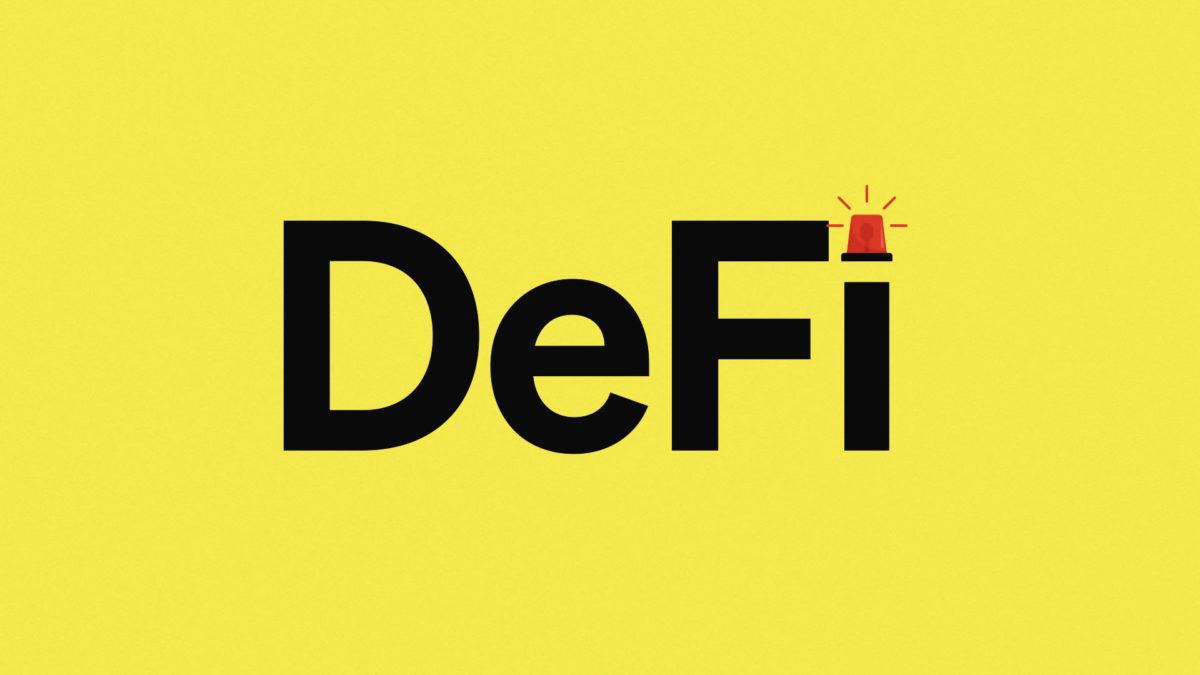SEC Commissioner concerned DeFi favors institutional investors and VCs

One of the SEC’s five Commissioners, Caroline Crenshaw, recently published her views on Decentralized Finance (DeFi) in the International Journal of Blockchain Law, reprinted on SEC.gov.
In her article, Crenshaw urged DeFi operators to follow disclosure rules and reiterated regulators’ role in ensuring a level playing field for investors.
She explained DeFi’s staggering risks. Crenshaw lamented the information asymmetry that harms victims.
Indeed, DeFi does not claim to be a $112 billion industry because of its privacy benefits. DeFi’s primary appeal is not technology, community, or “building a better financial system.”
Many DeFi protocols claim to decentralize power yet are Decentralized In Name Only (DINO).
DeFi explained by an SEC regulator
A moment for crypto lore: US Securities and Exchange Commissioner Hester Pierce (dubbed “Crypto Mom”) first popularized the DINO acronym, a dual play on the idiom “going the way of the dinosaur,” as well as the trendy “Republican in Name Only” RINO meme.
Crypto insiders know this but rarely admit it — DeFi exists as a multi-billion dollar industry because of one thing: yield.
Set-it-and-forget-it, seemingly well-managed, ultra-high interest investment accounts — that’s what people think they get in DeFi. The truth: users are categorically not protected like any managed investment account.
Crenshaw warned that DeFi operators should not simply hope to get lucky in avoiding subsequent SEC enforcement actions.
She highlighted a recent case in which Blockchain Credit Partners sold $30 million in security tokens but failed to file required disclosures with the SEC.
Blockchain Credit Partners then misallocated its funds. Its SEC settlement included $13 million in fines.
Crenshaw detailed some issues that make regulatory enforcement in the DeFi space difficult, including the pseudonymous nature of crypto and lack of transparency.
Most blockchains display the crypto addresses of all parties to transactions but not real names. This feature means extra work for the SEC to track down illegal activity like manipulative trading.
Crenshaw expressed concern that the lack of transparency favors institutional investors and venture capitalists (VCs) over retail investors who do not have the same level of financial access.
VCs can afford to hire experts who can analyze a new DeFi project and audit its code. Retail investors usually cannot.
Hopeful but methodical
SEC Commissioner Crenshaw concluded by recognizing that DeFi is an innovative field that may struggle to fit neatly into existing regulations.
She has been talking to professionals working in the DeFi space and reiterated that her office hours are open.
She noted the process of updating regulations to make things more predictable and friendly toward DeFi would likely take time.
“I cannot promise an easy or quick process, unfortunately, but I can assure you of good faith consideration and a true desire to help promote responsible innovation,” said Crenshaw.
Crypto can improve access for those who have difficulty accessing traditional financial services for various reasons, including an inability to pass Know-Your-Customer and Anti-Money Laundering (KYC/AML) requirements that regulators set.
Some crypto supporters are concerned that watchdogs like FinCEN could reinvent this obstacle by applying the same regulations to crypto and DeFi.
ShapeShift founder Erik Voorhees, for example, found ways to avoid KYC/AML requirements for his exchange for several years.
Inundated with warnings about non-compliance, Shapeshift recently announced plans to decentralize its exchange, ostensibly making it difficult for any single entity to control it and more difficult for regulators to take actions against it.
Potential holes in existing regulations do not mean that bad actors in DeFi should receive immunity from regulation. The history of crypto is replete with crime.
Read more: [DeFi traders are getting hilariously rich and you’re not]
Inevitably, criticisms of the SEC allow some to question the motives of regulators like Crenshaw.
Crenshaw is aware of the criticism, admitting in another speech at the SEC Speaks event in October that she follows crypto Twitter.
However, she said, regulators do have their place in a field that promises ultra-high yields; Main Street investors are vulnerable to fraud without referees who enforce a level playing field.
Looking for bite-sized news? We’re on Twitter.
